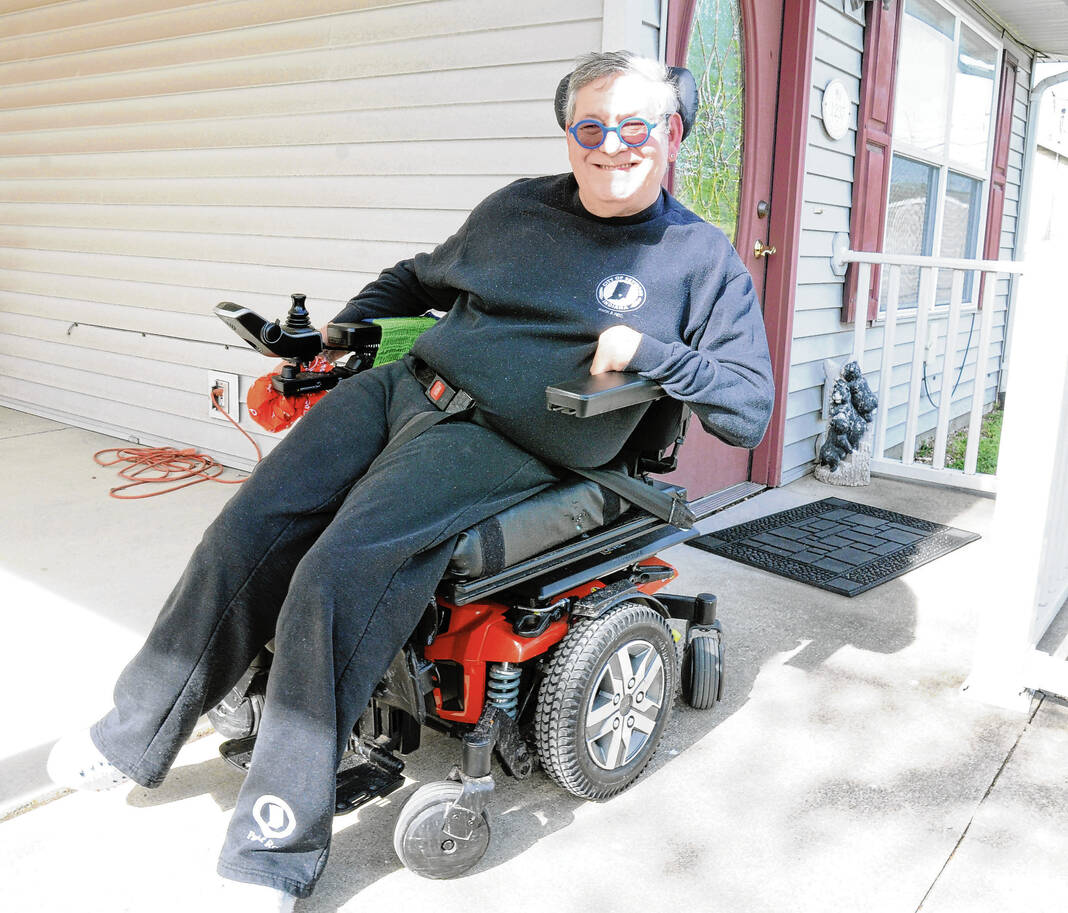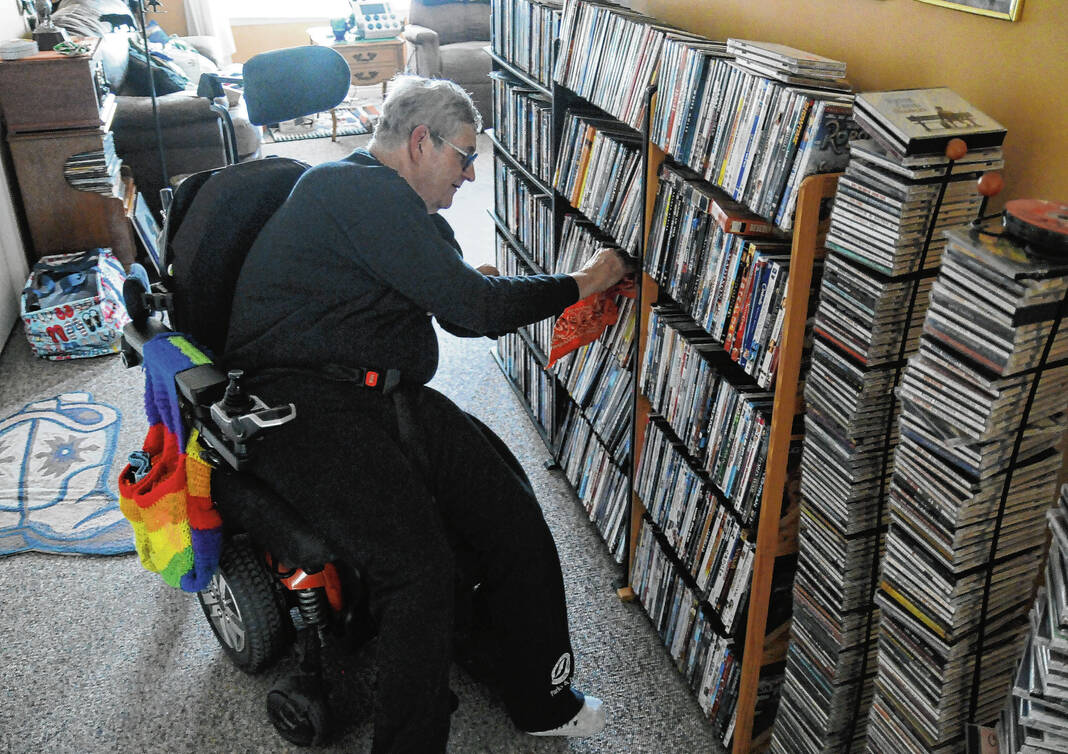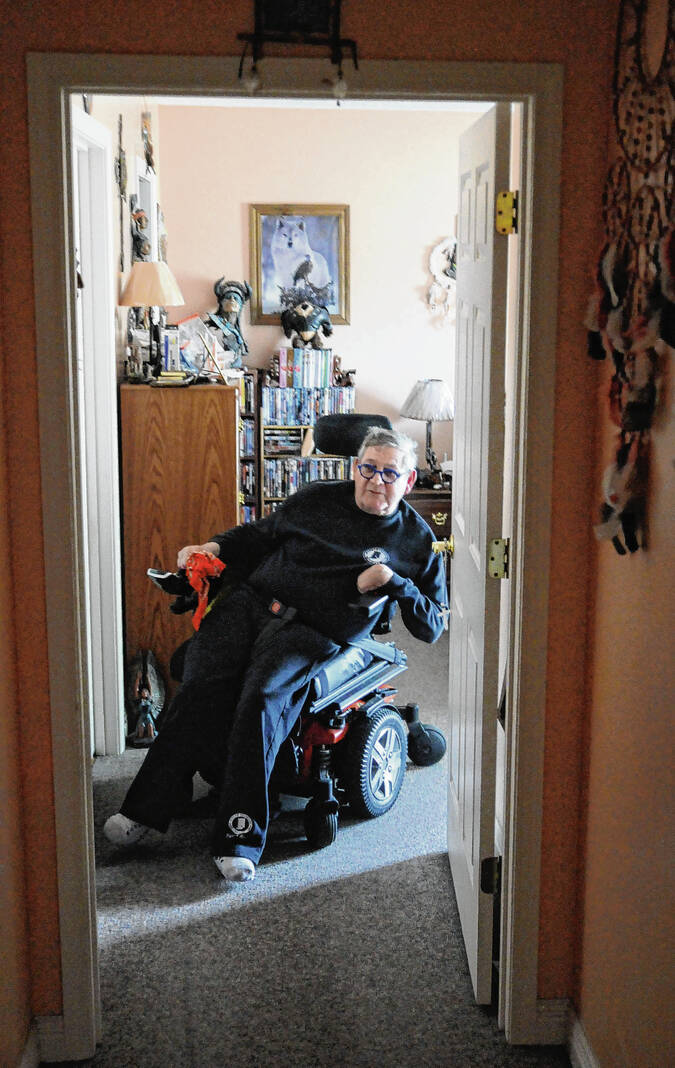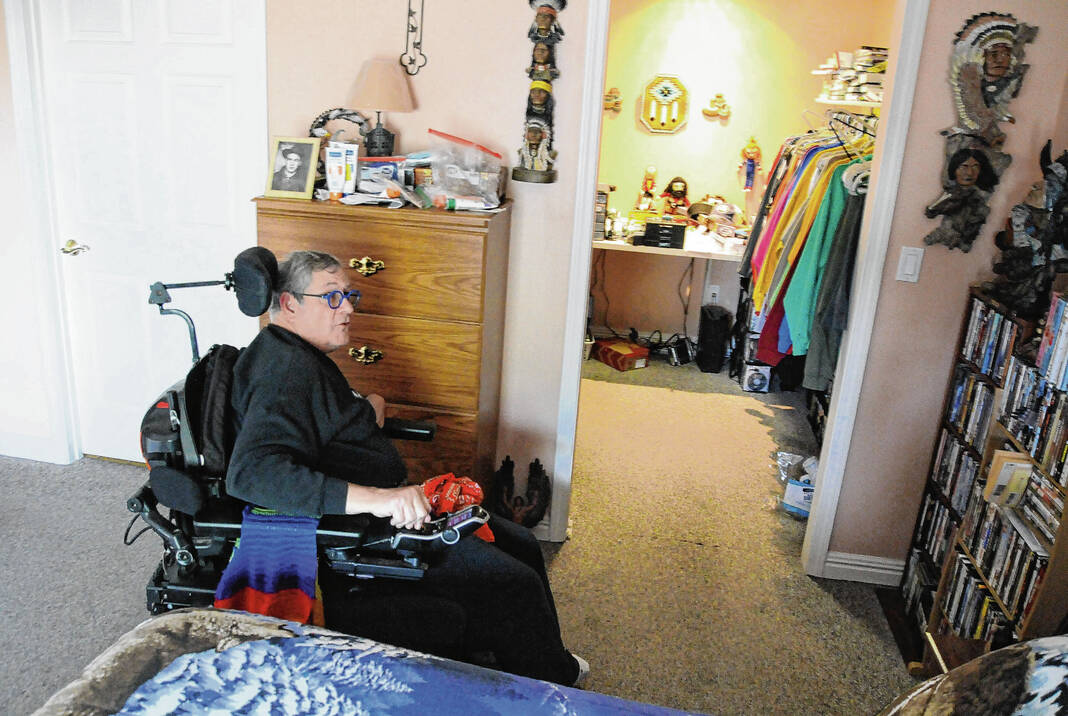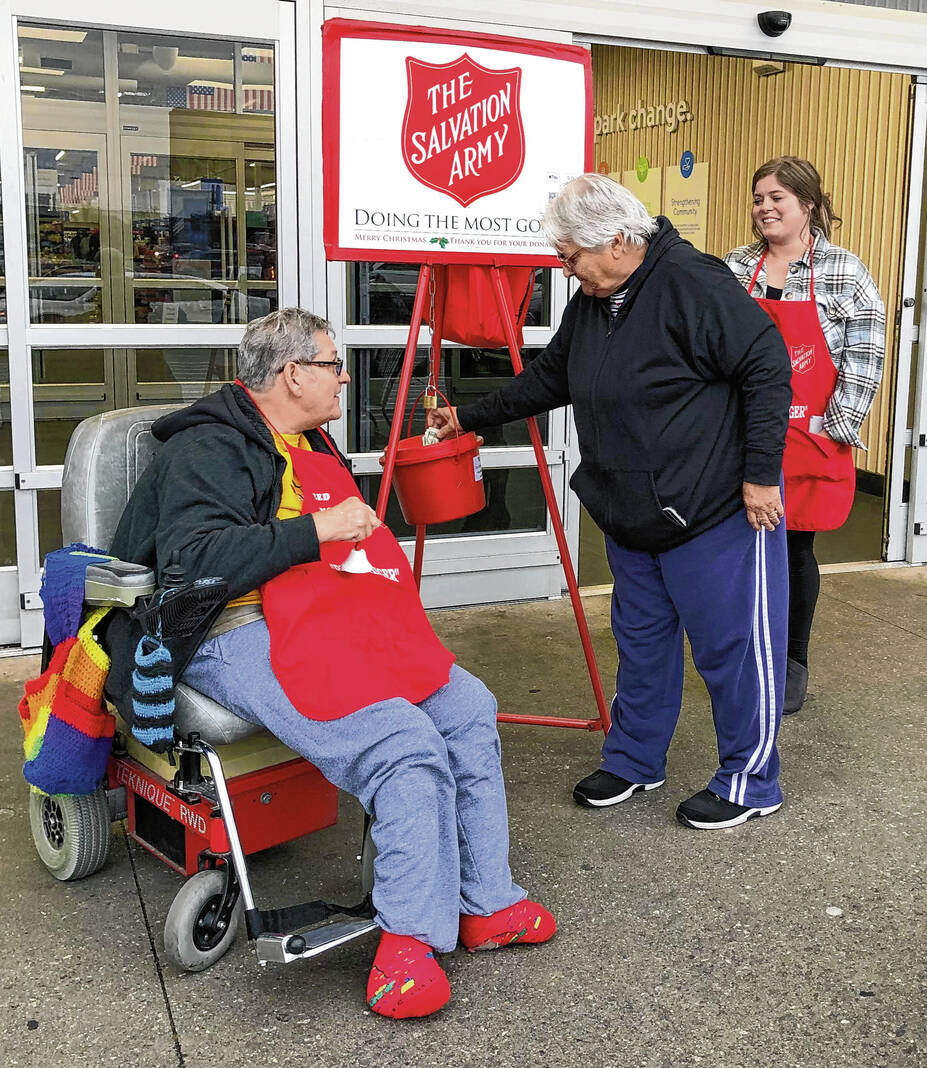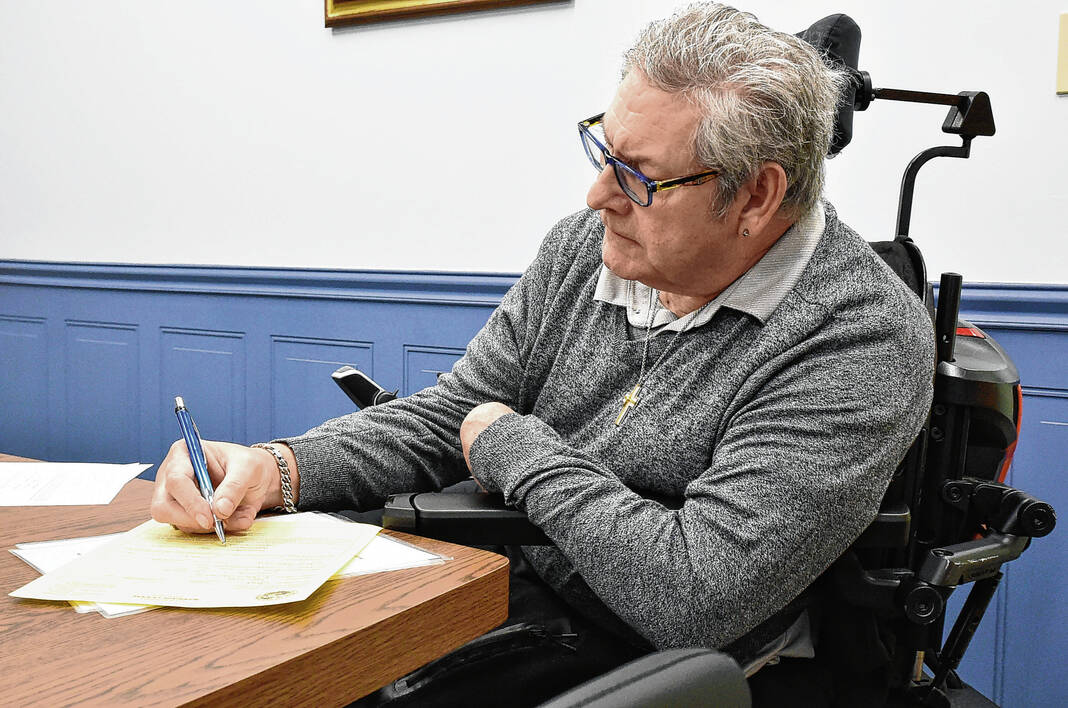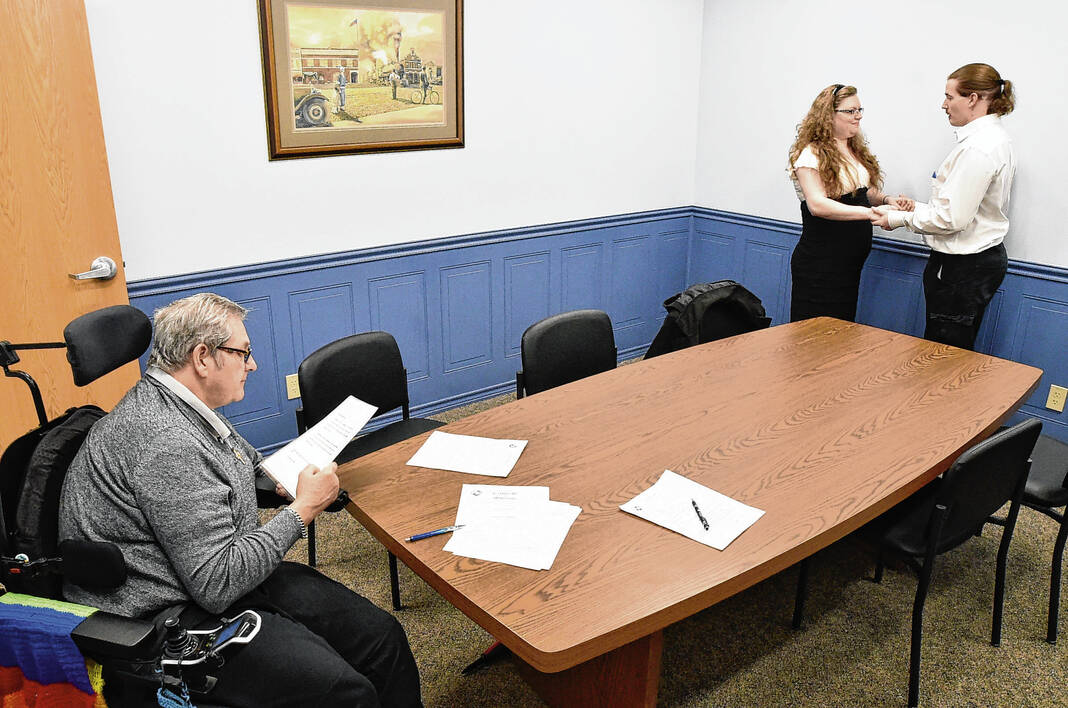Growing up with a disability and unsupportive parents was a challenge for Floyd Amburgey.
There, however, was one thing that helped him overcome that.
“I was born with a very positive attitude,” he said.
He hasn’t allowed his disability to hold him back, and despite having a fourth grade education, he has been able to live on his own for 30 years and work for even longer than that.
At 63 now, how would he describe his life?
“I’d say it goes far and above what I was,” the Seymour man said. “I have a very full life. I consider it very full. Just a general person that’s on the outside looking probably would not see it as such because other than work, I’m pretty much housebound, but I throw myself into whatever it is I do.”
Amburgey was born with spastic cerebral palsy. According to the Cerebral Palsy Alliance, the muscles of people with this most common type of cerebral palsy feel stiff and their movements may look stiff and jerky. Spasticity is a form of hypertonia, or increased muscle tone. This results in stiff muscles, which can make movement difficult or even impossible.
Amburgey said when he gets a sudden movement while sitting in his electric wheelchair, his legs vibrate.
“If I’m in public and people see me, I tell them I’m practicing the hula,” he said, smiling.
While growing up in the deep eastern part of Kentucky, Amburgey said if a family had a person with a disability, they would keep them locked up in a room alone 24/7.
“That’s pretty much the way they raised me, so they weren’t very supportive,” he said of his parents. “I felt owned, I guess. My parents appeared to play with my brothers and sisters and pretty much ignored me, didn’t speak to me.”
His parents also didn’t let him go to school.
“I couldn’t read or tell time or anything until I was 12 years old,” Amburgey said.
By that time, the family lived in Burney, a small community in Decatur County.
“Someone in that area reported my parents to the county for having a school-age child not in school, so the county forced them to get me a home tutor,” Amburgey said. “I’ve only got a fourth grade education. My parents said all they wanted me to learn how to do was to read and write.”
One day at home, a movie came on the family’s television and Amburgey read the title out loud, much to the surprise of his mother.
The family later moved to Austin and then Crothersville. Still living at home, Amburgey was signed up to work for Developmental Services Inc., and he remained there for a couple of years.
Then on April 27, 1993, he had an opportunity to move out on his own for the first time. That was at Jackson Park Apartments in Seymour.
“When I lived with my parents, I mentioned someday having a job or owning my own house. They openly laughed at me and made fun of me,” he said. “They told me that I was stupid and ignorant every day of my life, that I would never have anything or be anything. I loved my parents. It was just the region they were raised in, the era.”
He said he had the apartment before he told his parents he was moving out.
“The day I moved out, Mom looked at me and said, ‘Life as you know it has just ended,’ and she was right. It got better. She didn’t mean it that way, but it did get better,” Amburgey said, smiling.
He remained in that apartment for four years.
“It was an expensive apartment, and a representative from DSI was helping me pay my rent through Medicaid and things like that, and then she quit, so DSI called and told me that I would have to move out of the apartment or pay for it on my own,” he said. “Well, it was close to $500 a month, and I couldn’t afford it.”
Amburgey moved to Jamestown Apartments in Seymour and lived there for six years.
Then he landed an opportunity to have his own home through U.S. Department of Agriculture Rural Development grants and loans for low-income people.
“I applied, and I was accepted,” he said.
Shortly after, though, the war in Iraq began, and the USDA called him and told him the funds would be frozen. A year later, they called him again and said the funds were still frozen and he would need to get a real estate agent to start looking for a house.
Local agent Ruth Hall looked at several homes, but they weren’t handicap-accessible.
“I called USDA and told the representative ‘I appreciate everything you’ve done for me, but I’m going to have to give the grants and loans back because there are no handicap-accessible houses in Seymour,’ and she said, ‘No, you don’t. We’ll have one built,’” Amburgey said.
A home was built on King Avenue, and that’s where Amburgey still lives 20 years later.
“Coming from my background, I did not know that this kind of unconditional love and support existed, and I still get shocked because it does exist,” he said. “Everybody I work with is so supportive, everybody from the mayor to the police. I appreciate that, and I’m just really still not used to that. It still gets to me.”
Amburgey is in his 28th year of working for the city of Seymour. He was an assistant to the secretary in Mayor John Burkhart’s office from January to May 1995, and then he transferred to the parks and recreation department as clerk/secretarial aide, and he remains in that role today.
“I mostly do errands and help them arrange for the signups for the sports, answer phones. I do switchboard (at city hall) every day,” he said.
Amburgey also is a notary public and is ordained to officiate weddings at city hall. In three years, he has officiated 258 weddings.
Some people who are disabled either choose not to work or aren’t able to work. Amburgey, though, has always felt it’s important for him to work.
“Because I don’t consider myself disabled. I feel like I’m differently abled,” he said. “It just means to me that I’m just a normal person who happens to be sitting down, so I should work. I think anybody with any kind of obstruction should work if they are physically able. I just look at everything I’ve gone through, things I’ve had to go through to make me stronger.”
He said he plans to work until he’s able to pay off his house.
“Once I pay off the house, I think I’ll retire,” he said.
When he’s not working, Amburgey said he loves to read and watch television and movies. He has a vast collection of DVDs, CDs and books at home, and he also likes to write and has had a few short stories published in disability magazines.
He also loves to sit outside on his patio, and he loves being around people.
“I think the biggest kick I get out of people, I use my sense of humor as shock value,” he said, smiling, as he likes to tell jokes and share them on his Facebook page.
That sense of humor relates to his positivity, which helps him live a happy, independent life.
“I don’t believe in being bitter. I think bitter is too time-consuming, and I’ve got better things to do with my time,” Amburgey said.
To him, being independent means having a job, living on his own and paying his own bills.
“I hear people griping and complaining all the time about paying their bills, and I’m sitting here thinking, ‘Do you realize how lucky you are to be able to have a job, to pay the bills?’” Amburgey said. “I take nothing for granted. I take nobody for granted. I can’t.”
As for the message he wants to get across to others, he suggests a mindset he has always had to overcome any challenge.
“I would say to go beyond what you think your limits are because there are no limitations,” he said.

